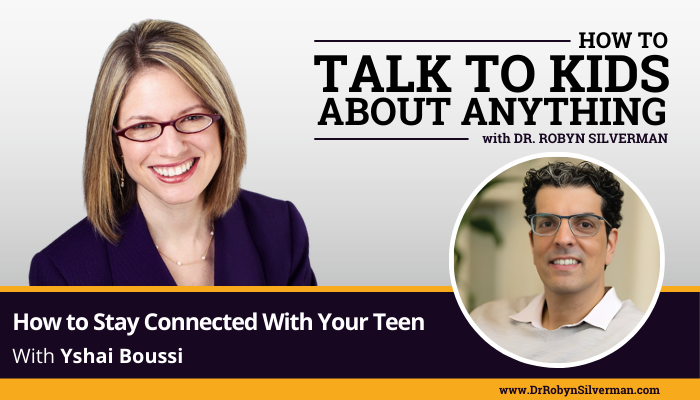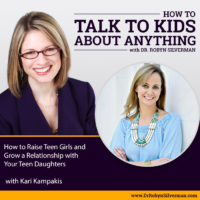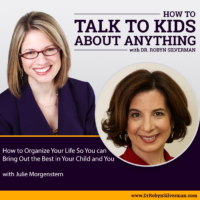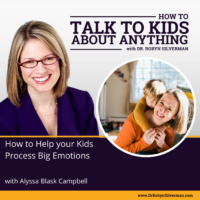Podcast: Play in new window | Download
Subscribe: Apple Podcasts | RSS | More
How to Stay Connected With Your Teen with Yshai Boussi
In this episode, we delve into navigating the turbulent waters of parenting teens with guest Yshai Boussi, exploring strategies to stay connected, set boundaries, and maintain harmony amidst the emotional rollercoaster of adolescence.
INTRODUCTION:
When it comes to your teen, do you feel like you’re walking on eggshells? Hey, I’m the parent of 2 teens and it can be a very tough time, depending on the day or the moment or whether they slept, ate, or had a fight with a friend. Emotions and hormones are running high, a mere glance in their direction or an ambiguous message on their phone can begin a fight. So, how can you stay connected, set limits, and keep the peace? For these answers and more, we are turning to our guest, Yshai Boussi.
Bio:
Yshai Boussi, LPC, is a licensed professional counselor who has helped teens, young adults, and families for more than twenty years. He runs a private practice with his wife Mariah, in Portland, OR, called Portland Family Counseling. Yshai is a highly sought after speaker, and writes a parenting blog on his website, portlandfamilycounseling.com. He has a new book out called Staying Connected with Your Teen—and we are excited to talk to him about how we can do just that.
Important Messages:
- The Challenge of Correcting Your Teens: One of the challenges of families, we get so caught up in the corrective aspects of our job. Like, did you get your chores done? How about your homework? Can you please come downstairs? Can you pick that up? You know, like, I need you to be home. Why were you late? Some of that is just real, but we can get caught up in that. And then it’s like, where’s the connection? Where’s the joy? Where’s the fun? Then kids can start to just anticipate that. It can create a vibe that is uncomfortable.
- Foundation of Connection: It’s frustrating sometimes. Like, do I have to ask you five times? So I get the correction part, but often what I have to come back to
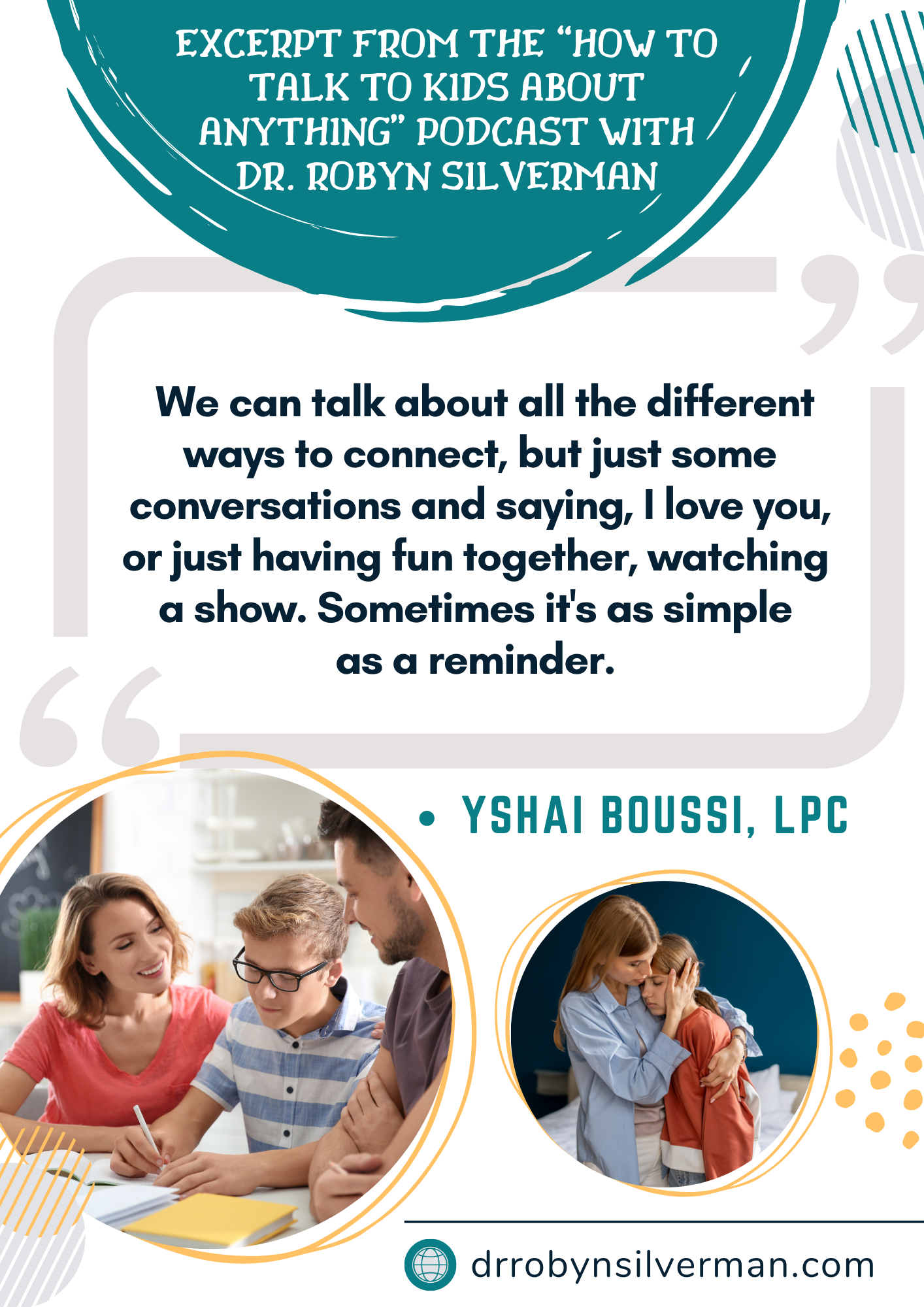 is how about the connection? We can talk about all the different ways to connect, but just some conversations and saying, I love you, or just having fun together, watching a show. Sometimes it’s as simple as a reminder. The foundation of everything comes down to connection. And then we can get to the correction and actually have an impact. Because we don’t have an impact with, on the corrective stuff, if there isn’t a foundation of connection.
is how about the connection? We can talk about all the different ways to connect, but just some conversations and saying, I love you, or just having fun together, watching a show. Sometimes it’s as simple as a reminder. The foundation of everything comes down to connection. And then we can get to the correction and actually have an impact. Because we don’t have an impact with, on the corrective stuff, if there isn’t a foundation of connection. - Right Conversation to Connect: It really is a balance. I gotta like hold my breath sometimes when I go in there and talk, I do say something, like, I need you to do this or we gotta do this together. Then I come back later, then I might need to be like, Hey, I just wanna like, see what you’re up to. You know, what are you watching? Or, you know, what are you eating? Or just want to say goodnight and I hope you had a good day. Just something in there that’s mixed in with it. But yeah.
- (Dr. Robyn) Connecting Purposely: How many touches do you make each day? And how many of them would you kind of think to yourself, those were corrections? If you just had to kind of step back how many were connections? If it feels like anything you remember were corrections, then you may need to kind of think to yourself, oh, alright, I gotta kind of build in some more correction. And sometimes that actually has to be done really purposefully. Like as you’re saying, you know, ask them like, what are you watching? What are you reading? Even if you don’t care. As I listened to my son talk to me about some kind of meme or whatever was on Discord or you know, whatever, you know, silly thing with his Minecraft.
- (Dr. Robyn) Listening as a way of Connecting: My son talked about his 8th-grade friend, and he’s like, oh my gosh, the funniest thing that happened today. I’m thinking to myself, it’s probably not gonna be that funny, but I’m gonna sit here and I’m gonna listen to it because this is his way of connecting with me. This is what he has and he’s coming to me and he wants to share it with me. And he came home and thought, I wanna tell my mom. And that’s what we want, like later on in life. Totally. We want them to still be like, I wanna tell my mom, or dad, because you don’t want them to be like, oh God, every time I tell my mom or dad that, they’re like, that’s not funny. Why would you do blah, blah? Correction. Correction. So we have to kind of get out of our own way.
- Good Investment: Just yesterday, my son, built something he was really proud of on Minecraft. He’s like, Dad, I wanna show you. And I was like, not that interested, but I sat there for 15 minutes, right? I let him show me and I pretended to be interested because it was important to him. There’s a part of me that was like, I got other stuff to do right now, I’m not really that interested. But like, I saw him really proud of it, and so I needed to make that effort. And, it paid off. Like it is an investment, we get that back later.
- Polyvagal Parenting Strategies: I talk about something called Polyvagal theory, all it means really is a model for understanding that it is our nervous system that is our first responder to our environment. It affects the way we think about ourselves, about the world, and about others. And this was really important and helpful to me personally as a parent and in my work with clients, because what it tells us is it’s not so much what we think that shows up first, our perception. It’s more what our body is picking up on. And our body, we have three different pathways or three different stages. And so we’re either shut down or we’re activated, or we’re regulated.
- The Ladder: And that’s true for kids. That’s just true for humans. And so shut down is sort of like when we’re, you know, disconnected, low energy, withdrawn, like meh, it could be something like depression, but it doesn’t have to be. We all know it when we’re in it. And I kind of think of it as the color blue, you know, of just like when I’m in that state. And then when we move up to give this as a hierarchy or a continuum of states. So when we move up, and I use a ladder metaphor in my book. So you climb up the ladder and you get into the middle rungs, and our state is activated, so that’s fight or flight people think about. So adrenaline and cortisol, we’re mobilized, we’re energized, and so it could be really fidgety, it could be a lot of anxiety, it could be anger, explosiveness, things like that.
- State of Regulation: And then when you move up to the top rungs of the ladder, that’s when we experience a state of regulation. That’s when we’re calm, and peaceful, we can connect joy, sometimes excitement, happiness, and all that good stuff. And so these three states are like a continuum and we move up and down them. And so there’s a saying, a flexible nervous system is a healthy nervous system. We don’t wanna get stuck in those lower rungs of the ladder. And we all, we have kids that can lean into and all, and us too.
- Activated vs Shutdown: We have sort of a home away from home where we can be a little more on the activated side or a little more on the shutdown side. And so some of us have kids that are more aloof or more like knock it out of bed kind of kids or get off the couch. And then we have kids that are more activated and they’re pacing and they can’t be still, and they’re constantly moving their body and they’re very on edge or defensive or argumentative. And so this idea, polyvagal theory, and polyvagal parenting are about understanding how to read our kid’s nervous system. Where are they and where are we? Our job (as a parent) is how do I help my kid get more regulated right now? Our kids come home from school and they’re activated sometimes, or they’re shut down and they just want to go in their room. And sometimes they’re regulated and they hear us coming up the steps or coming to the door and all of a sudden they drop down the ladder and now all of a sudden they’re activated and we’re like, I didn’t even do anything. Right. And so thinking about it in terms of the nervous system helps us realize we need to help calm their body, their state, regulate their state, and not just change the way they think.
- Non-Verbal Language: Do not underestimate the power of the little things. The thing is we think about our words, but our kids are tuning into our nonverbal language far more than our words. What is my nervous system communicating to my kid, my facial expression, my eyes, my tone of voice? Am I loud? Am I firm? Am I softer? That makes a big difference to how our kids receive us. It’s not about perception. They’re paying attention to how we’re being, our nervous system is talking to their nervous system in a nonverbal way. I think we overestimate the power of our language and our talking and underestimate the importance of how we show up with our nonverbal language, body language in tone.
- (Dr. Robyn)Mastering Presence – The Key to Smooth Conversations: It has much less to do with our words and much more to do with our presence than anything else. You know, how do we show up in that room? How do we show up on the phone? How do we show up? Because if we’re in a position where we are active, we have kept our composure. It’s like some kind of magical thing. We don’t keep it, we work at it. Right? So if we can actively work at our composure and breathing, talking to ourselves calmly and actively knowing that our presence is going to make a difference, then when we do walk into the room, even when we’re in crisis, even when there’s something big that’s happening, even when we just got a call from the teacher that something’s not right, that when we approach it in the way where we can actively work on our composure, it will make that conversation go much more smoothly.
- Autonomic Nervous System: I want to just also validate, there are times when we just don’t have the composure and we just don’t. Our autonomic nervous system, another word is the automatic nervous system, auto our heart, our breathing, and our digestion. All of that stuff is it’s auto. And we just can’t, literally can’t in the moment. And that’s just real. So sometimes we do need to be like, I can’t talk right now. I need some time and I need to cool off. And then we’ll talk about it later. They might be ready and we just can’t. And that’s okay. That’s reasonable. We still need to have the conversation, but I just can’t do it yet. And then we just, and we have all done this too, and it’s like, that was regrettable. I did not handle that well. And then we can apologize for our part in that and try a do-over and, and try again.
- Comeback & Recover: I do a lot of family therapy and so it’s like some of the stuff is gonna be hard. We’re trying to create some new habits and patterns. It’s okay if you get triggered and if you need to leave the room. That is not insulting or disrespectful. Say that’s actually taking care of yourself to say, I need to leave right now. And then the expectation is you come back when you’re ready. So having, getting ahead of that is like, I’m feeling stressed out and I need to walk away, like it’s me taking care of myself and, I’m gonna ask you to do the same and then we will try again and come back. It’s important to come back in those situations and recover and model that. So that is one thing like let’s have a plan for when we get there.
- Accountability: Oftentimes, kids and teenagers don’t hear us adults apologize enough in general. We expect so much of them to take responsibility and say they’re sorry. And just adults don’t, they don’t see adults doing that. So I think it can be extremely powerful to come back and say, I am sorry for losing my cool like that, it made the situation worse and I’m gonna work on that.
- (Dr. Robyn) Repairing: Apologizing can go a long way to repairing the relationship. Last night my daughter said to me that she is sorry, that she said some things that were not very nice. She was stressed out. We knew she was stressed out about something and she said that I do so much for them and she really appreciates me. And I was like, you know what? Let me just tell you that that is so meaningful to me that you took the time to say those words. Because I’m holding that in my heart. That is the part that I will remember. It’s not whatever happened. That apology and just recognition really make a huge difference to me. I appreciate it. And I said to her what I would hope others would say to me, which is, tomorrow is another day and we can always try again and, show that they don’t feel like there’s this carryover effect where they mess up and then the next day can be ruined. That we can get up, make say, and try.
- Creating Space for Vulnerability: A hunch about how you might have co-co-created that space for whom to apologize. Because I think after a blowup, what we do next, there is a window of opportunity for some vulnerability and openness if we create space for it. And so my hunch is when I show humility. I’m calm, I talk about my part, and I’m ready to really hear it. Listen, they feel bad. Our kids feel bad when they mess up, they feel guilty. But if it becomes a power struggle of like, who’s right, who’s wrong, who’s to blame, then they’re gonna get defensive and lock in and like, well I didn’t do anything in it. And they’re gonna try to save face. So if we can go in with humility, which I’m sure I imagine you did, you must have, you know, say, Hey, here’s my part. It gives them permission to apologize without feeling like we’re gonna say, I told you so.
- Rethinking Screen Time Dynamics: Kids get very defensive when we are only negative about screens 24/7. Toxic. You’re addicted. It’s horrible. It is ruining your generation. But like, it is an important way to connect. So I wanna say that. And it is not either or. That can’t be the only thing. When we don’t make it such a big loaded thing and we’re like, yeah, I’ll watch Roblox with you or like your minecrafting for a little bit and that is cool. I’m glad you know you got your time. Okay, now I wanna go on a hike this weekend. I wanna go on a bike ride. I wanna play a board game. Let’s figure out what else we can do. Then they’re gonna be less often less defensive about it or less reactive.
- Fostering Connection Beyond Screens: It’s not as big of a deal. It doesn’t feel like a weird control power thing. Right. That they have to hide and be sneaky. So I do think it’s important and a good idea to find ways to connect that don’t involve screens and make that a priority. And sometimes we have to push that a little more. Because some kids have a harder time finding ways to connect without a device or a screen. And some parents might be like, see I do the connecting with the screens, but then they do not want to do anything else. And I totally empathize with that. I think it is fair to say, have an expectation that we are gonna spend time together and it is just not gonna involve a screen. Here are four things that I think you might enjoy. Which one would you like to pick? Sometimes giving them a few choices. Talk to them like, you know, the young adults, teenagers, they are, don’t talk down to them. But offer, if they can’t come up with anything, then we give them three or four reasonable choices and then we have them pick one.
- Patience with our kids: Some kids need more patience than others, our kids can be harder on us than they are on anyone else. Because that is the safe place. And they will sometimes be trying to upset us just because they’re having a bad day and they need to just unleash. So patience and then just every day hanging in there. Keep showing up and the results will happen.
Notable Quotables:
- Yshai Boussi: “We can talk about all the different ways to connect, but just some conversations and saying, I love you, or just having fun together, watching a show. Sometimes it’s as simple as a reminder. The foundation of everything comes down to connection. And then we can get to the correction and actually have an impact. Because we don’t have an impact with, on the corrective stuff, if there isn’t a foundation of connection.”
- Yshai Boussi: “Our job (as a parent) is how do I help my kid get more regulated right now? Our kids come home from school and they’re activated sometimes, or they’re shut down and they just want to go in their room. An
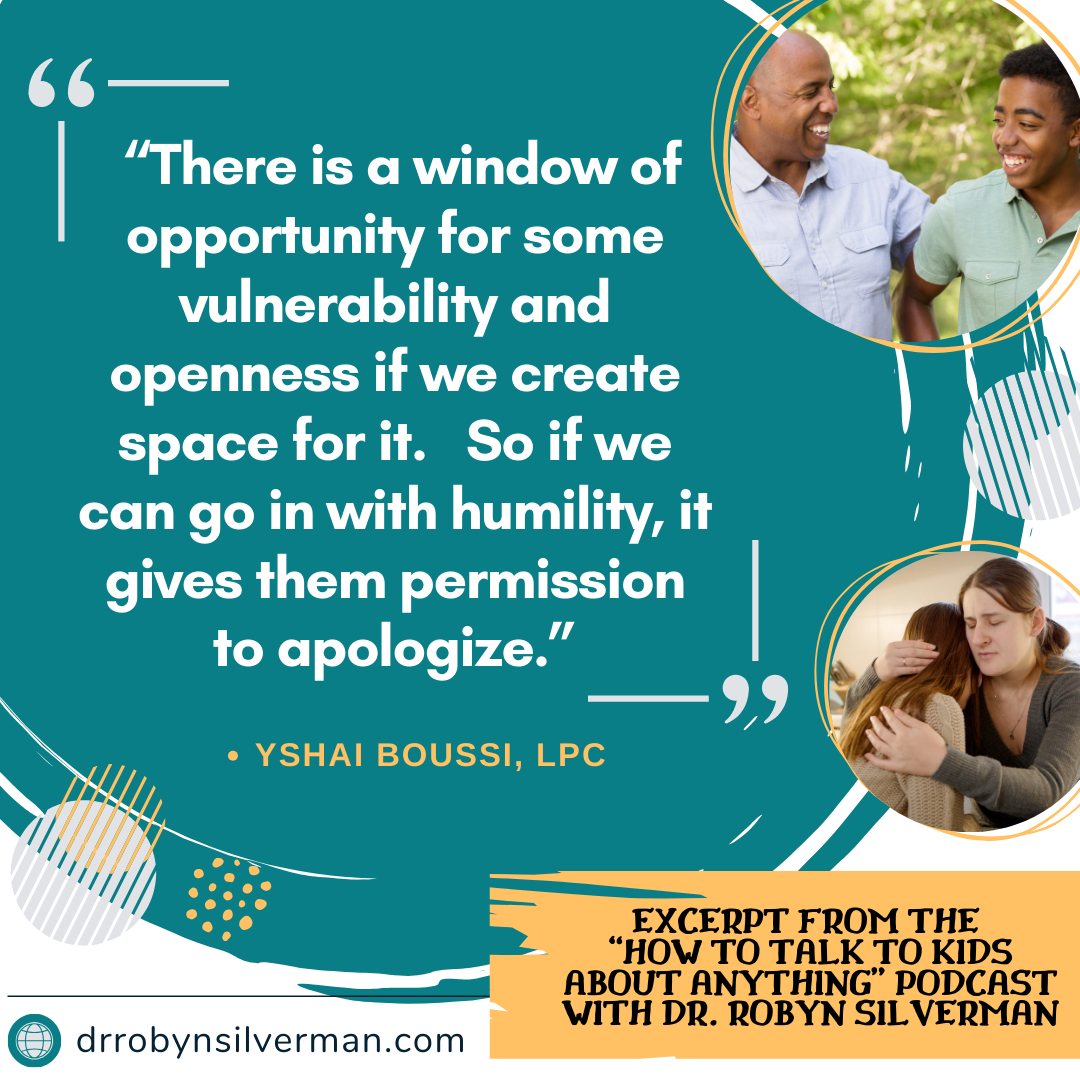 d sometimes they’re regulated and they hear us coming up the steps or coming to the door and all of a sudden they drop down the ladder and now all of a sudden they’re activated and we’re like, I didn’t even do anything. Right. And so thinking about it in terms of the nervous system helps us realize we need to help calm their body, their state, regulate their state, not just change the way they think.”
d sometimes they’re regulated and they hear us coming up the steps or coming to the door and all of a sudden they drop down the ladder and now all of a sudden they’re activated and we’re like, I didn’t even do anything. Right. And so thinking about it in terms of the nervous system helps us realize we need to help calm their body, their state, regulate their state, not just change the way they think.” - Yshai Boussi: “Do not underestimate the power of the little things. The thing is we think about our words, but our kids are tuning into our nonverbal language far more than our words. They’re paying attention to how we’re being, our nervous system is talking to their nervous system in a nonverbal way. I think we overestimate the power of our language and our talking and underestimate the importance of how we show up with our nonverbal language, body language in tone.”
- Dr. Robyn: “It has much less to do with our words and much more to do with our presence than anything else. You know, how do we show up in that room? Right? So if we are able to actively work at our composure and breathing, talking to ourselves calmly and actively knowing that our presence is going to make a difference, then when we do walk into the room, even when we’re in crisis, that when we approach it in the way where we can actively work on our composure, it will make that conversation go much more smoothly.”
- Yshai Boussi: “Our autonomic nervous system, another word is the automatic nervous system, these autos our heart, our breathing, our digestion. All of that stuff is it’s auto. And we just can’t, literally can’t in the moment. And that’s just real. So sometimes we do need to be like, I can’t talk right now. I need some time and I need to cool off. And then we’ll talk about it later. They might be ready and we just can’t. And that’s okay. That’s totally reasonable. We still need to have the conversation, but I just can’t do it yet. And then we just, and we have all done this too, and it’s like, that was regrettable. I did not handle that well. And then we can apologize for our part in that and try a do-over and, and try again.”
- Yshai Boussi: “ It’s okay if you get triggered and if you need to leave the room. That is not insulting or disrespectful. Say that’s actually taking care of yourself to say, I need to leave right now. And then the expectation is you come back when you’re ready. So having, getting ahead of that is like, I’m feeling stressed out and I need to walk away, like it’s me taking care of myself and, I’m gonna ask you to do the same and then we will try again and come back. It’s important to come back in those situations and recover and model that. So that is one thing like let’s have a plan for when we get there.”
- Yshai Boussi: “There is a window of opportunity for some vulnerability and openness if we create space for it. And so my hunch is when I show humility. Our kids feel bad when they mess up, they feel guilty. But if it becomes a power struggle of like, who’s right, who’s wrong, who’s to blame, then they’re gonna get defensive and lock in. And they’re gonna try to save face. So if we can go in with humility, it gives them permission to apologize without feeling like we’re gonna say, I told you so.”
- Yshai Boussi: “I do think it’s important and a good idea to like find ways to connect that don’t involve screens and make that a priority. And sometimes we have to push that a little more. Because some kids have a harder time finding ways to connect without a device or a screen.”
- Yshai Boussi: “Some kids need more patience than others, our kids can be harder on us than they are on anyone else. Because that is the safe place. And they will sometimes be trying to upset us just because they’re having a bad day and they need to just unleash. So patience and then just every day hanging in there. Keep showing up and the results will happen.”
Resources:
- Website: https://yshaiboussi.com/
- Portland Family Counseling: http://portlandfamilycounseling.com/about-us/yshai-boussi-lpc/
- Instagram: https://www.instagram.com/yourteentherapist/?hl=en
- Facebook: https://www.facebook.com/portlandfamilycounseling/
- Amazon: https://www.amazon.com/Staying-Connected-Your-Teen-Strategies-ebook/dp/B0CGN4JPJF
- Books:
– “Staying Connected with Your Teen: Polyvagal Parenting Strategies to Reduce Reactivity, Set Limits, and Build Authentic Connection” – 2024

